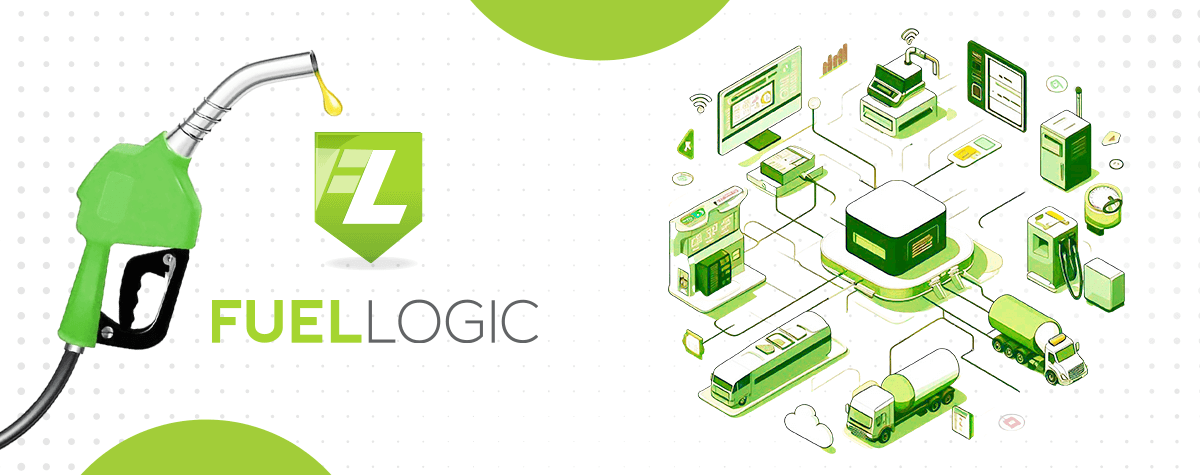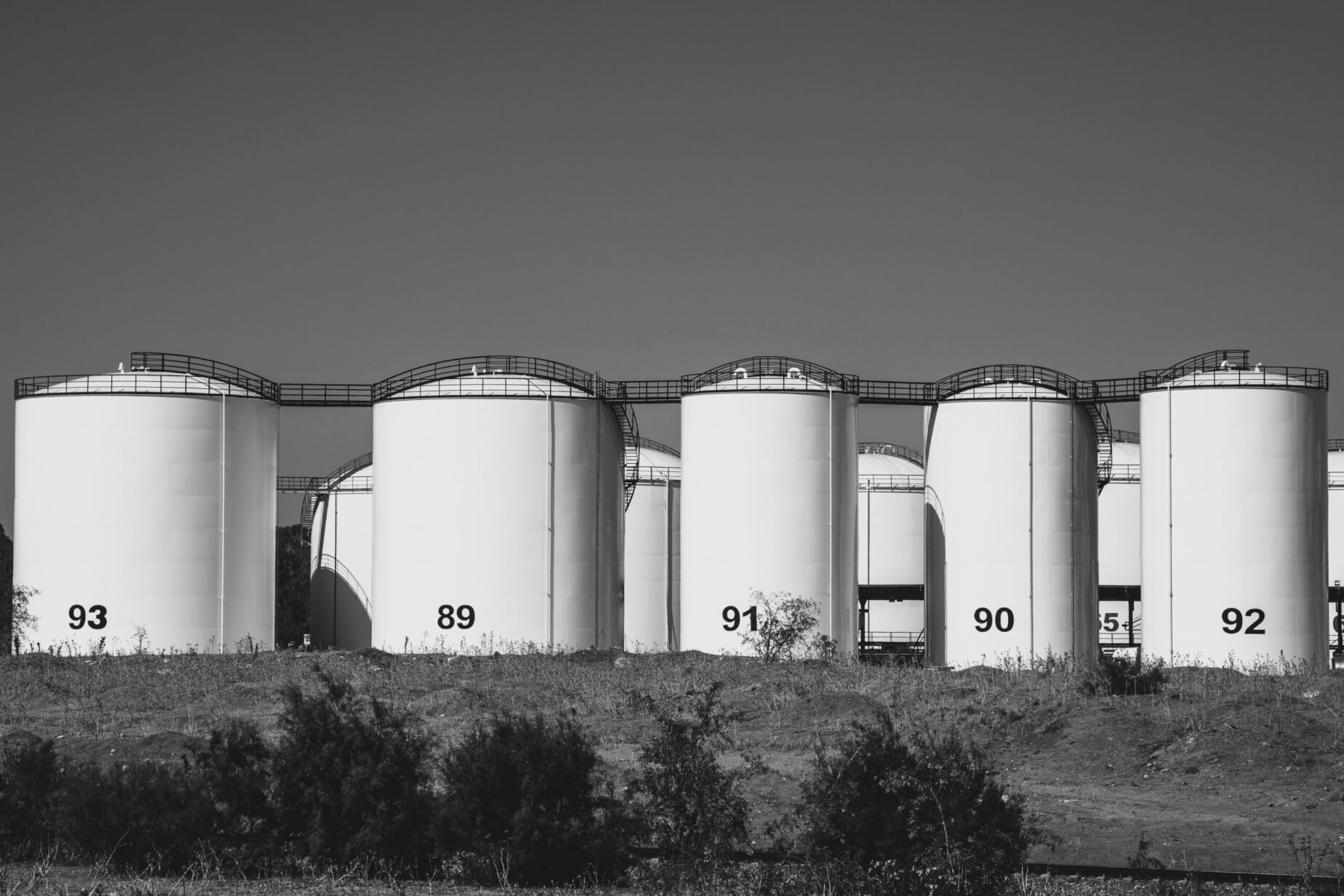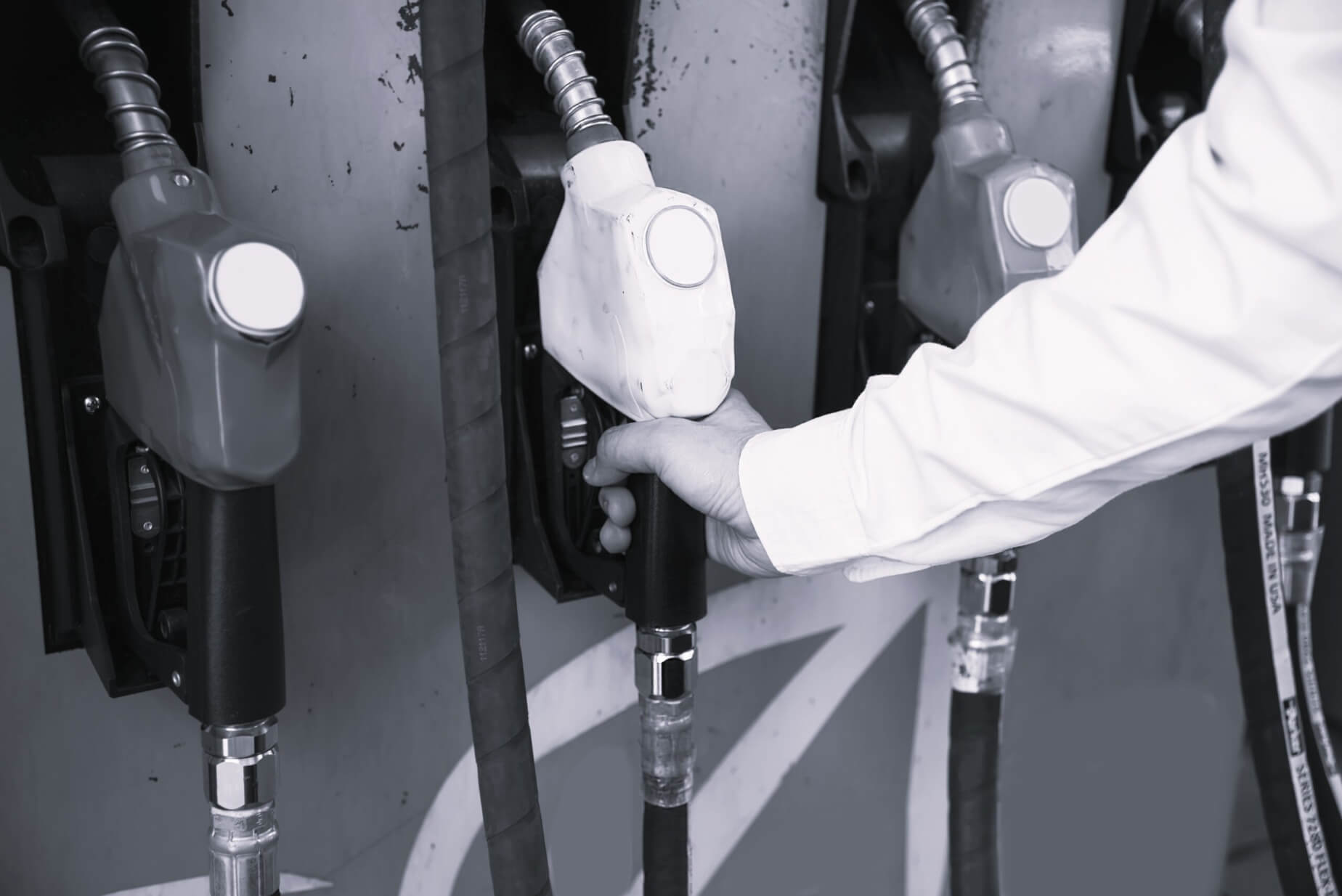Benefits of Fuel Management and Fuel Monitoring – Things You Need To Know To Save Money and Boost Efficiency
Fuel management systems are crucial for businesses relying on vehicles and machinery, helping them save money and improve efficiency by regulating fuel acquisition and usage. However, it’s a major challenge for companies, especially those with large fleets. This is because of issues like unauthorized use of fuel, poor driving and fuel monitoring, inefficient routes, and excessive idling. All these problems result in both financial losses and wasted time.
A 2020 study of 189 companies found that Swedish road carriers lost 150,225 liters of fuel to theft. By simply investing in a fuel management system (FMS), companies can save money and boost fuel consumption efficiency. So, how does this system work, why does it matter, and how it can benefit us in the long run?

What is Fuel Management?
Fuel management is like keeping a close watch on how much fuel we use and finding ways to use it smartly. It’s a big deal in industries like transportation (think trucks, ships, planes) and any business that relies on fuel.
For instance, a trucking company might use fleet fuel management to ensure their delivery trucks run efficiently, helping them save money and reduce their carbon footprint.
What is Fuel Monitoring?
Fuel monitoring is a crucial aspect of fuel management. It means keeping tabs on real-time data like fuel use, purchases, and maintenance and how drivers handle it. For instance, a delivery company might use fuel monitoring to see if their drivers are idling too much, which can help them reduce fuel costs and environmental impact.
How does Fleet Fuel Management work?
Fuel Management Systems (FMS) monitor how much fuel a fleet uses. These systems vary based on employed fleet solutions, such as fleet fuel management software, telematics, or fuel cards.
They measure and track fuel stock, purchases, and dispensing accurately and spot fuel waste by monitoring inventory and idling time across a fleet. All this data gets stored in computers and shared with managers through web portals. Here’s how a fleet fuel management helps you save money and how the system works:
- Fleet Management Software – Using a fuel management system in fleet management allows for importing historical fuel data from legacy software or spreadsheets and tracking fuel economy. In addition, you can input transaction details in mobile apps, enabling monitoring of per-mile operating costs.
- Telematics – Telematics uses plug-in devices to gather data directly from assets, offering detailed fuel-related info, idle time, DTCs, driver behavior, and GPS tracking.
- Fuel Cards – Fuel cards record transactional fuel data, including driver ID, gallons/liters pumped, odometer reading, fuel grade, cost, location, and time.
A point to remember here is that integrating fuel cards and telematics with fleet management strategies provides accurate and timely data. This helps in better monitoring of fuel usage.
This comprehensive approach helps monitor fuel spend in daily operations, assess mechanical issues and replacement cycles, identify potential misuse, and track fuel used on job sites.
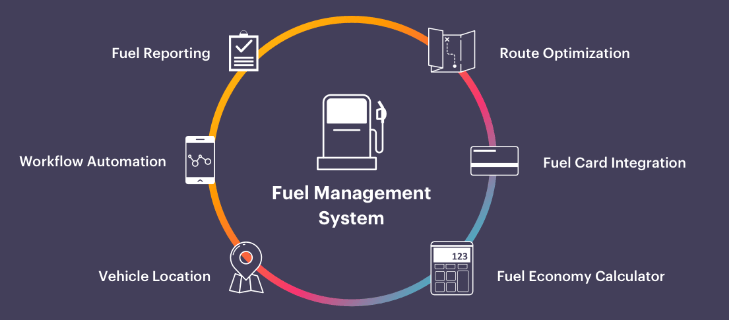
What is the Fuel Management Process?
A fuel management process is a structured way to monitor and make the most of fuel in different industries like transportation, construction, and fleet management.
It’s a series of important actions to help businesses use fuel wisely, save money, and follow regulatory compliance. Here’s a step-by-step process for implementing fuel management in an organization:
- Assessment and Planning – First, we need to determine what our organization needs for fuel management, whether cutting costs, boosting efficiency, or preventing theft. We must start by making a budget that covers everything, like hardware, software, setup, and training.
- Select a Suitable Fuel Management System – We should choose a fuel management system that matches our organization’s goals. Make sure it works with what we already have, can grow as needed, is easy to use, and comes with solid support.
- Installation and Integration – After choosing the system, we need to install fuel sensors, card readers, and GPS devices in vehicles or tanks and get the software up and running on a central server or in the cloud. It’s crucial to ensure everything works smoothly with other management systems for efficient data sharing.
- Data Entry and Configuration – Next, we should input vehicle and tank info, set user access rules, and create fuel consumption guidelines in the system.
- Calibrate Fuel Sensors – It’s imperative to fine-tune fuel sensors for precise fuel level measurement and double-check measurements for dependable data.
- Train the Crew – Teach the team, drivers, and fuel managers how to use the system well and ensure everyone knows their roles in fuel management.
- Fuel Monitoring and Control – Keep an eye on fuel usage, levels, and data regularly, either in real-time or on a schedule. Set alerts for spotting and responding to unusual events like sudden fuel drops or unauthorized refueling.
- Utilize Reporting and Analytics – Use the system’s reports and analysis tools for valuable insights. Study the data to spot trends, inefficiencies, and cost-saving chances.
- Optimize Fuel Management – Keep improving fuel management based on system insights. Use data for smarter, cost-effective decisions and best practices.
- Compliance and Regulations – Make sure the fuel management system follows local and national rules, primarily if your industry deals with fuel tax reporting or environmental mandates.
Benefits of Fuel Management and Fuel Monitoring
Implementing a fuel management and monitoring system offers several advantages to organizations across various industries. Here are some of the key benefits:
Real-Time Monitoring and Accurate Data
Fuel management systems provide real-time data collection and ensure precise, error-free records. They organize data for accessible custom reports, letting a business sort it by factors like date, depot for multi-location fleets, and assets.
This automation slashes the time and errors linked to manual data handling, making insights quicker and more reliable. For example, a GPS-enabled fuel monitoring system will ensure that a company’s drivers refuel at authorized locations and do not siphon fuel for personal use.
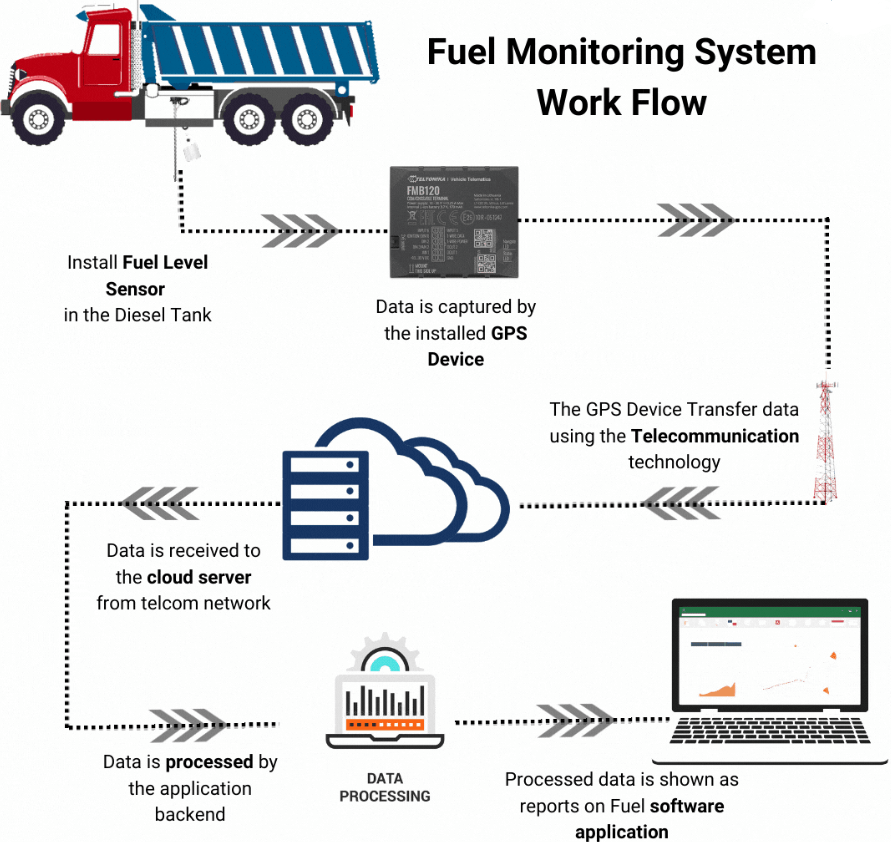
Minimize Fuel Costs and Wastage
Using an FMS, a business can stop fuel losses and catch problems early, which means more yearly savings. When we have precise data, we can find and fix where we waste fuel.
For instance, a construction company with an FMS might see their heavy machines idling too much. By fixing this, they can cut fuel use and costs big time.

Better Fuel Efficiency
With an FMS, we can track how long or idle our vehicles run. This helps us find chances to train the drivers better and stop wasting fuel.
Also, we can improve fuel efficiency by telling the drivers to keep a steady pace and avoid sudden speeding or braking.
This keeps the fleet in better shape and saves us money. In addition, if a business gets bulk diesel, it can benefit from FMS by ensuring accurate fuel tracking for invoicing and inventory management, contributing to cost and fuel efficiency.

Reduce Fraud
FMS protects against card skimming at fuel stations by using real-time GPS tracking. This ensures we can monitor our vehicles’ locations and cross-reference them with fuel purchases.
If we spot an unauthorized charge when none of our official vehicles are nearby, FMS fuel reports help us identify potential fraud. Furthermore, the FMS provides detailed information on fuel locations and transactions.
If fuel levels decrease rapidly, it triggers alerts, allowing us to detect fuel theft or siphoning attempts in real time.

Preventive Maintenance Scheduling
Relying on drivers for vehicle maintenance is challenging. Early issue detection leads to cost savings, as last-minute repairs can be expensive. An FMS streamlines maintenance tasks.
It offers real-time alerts for engine issues, promoting fuel efficiency and reduced check-ups. Well-maintained engines are cleaner and perform better. Proper tire inflation and alignment also reduce resistance, resulting in fuel-efficient vehicles and cost savings.

Improved Planning and Route Optimization
FMS uses GPS and traffic data to suggest efficient routes, saving fuel and time for improved deliveries and customer satisfaction. It also allows on-the-fly route adjustments for traffic incidents and aids in future route planning with valuable data on travel times and traffic patterns.

Enhanced Good Driving Behavior
A fuel management system helps improve driving behavior within fleets by detecting speeding and harsh braking. It enables fleet managers to promote fuel-efficient practices by monitoring idling and driving habits per vehicle and spotting inefficiencies through data analysis.
Moreover, fuel management data can identify drivers in need of training. This training can be tailored to the fleet’s requirements, including automatic alerts for specific driving behaviors, offering flexibility for fleet managers.
Lower Carbon Footprint
A fuel management system can not only help companies comply with regulations but also enable them to monitor their environmental impact and establish reduction goals.
It promotes cleaner fuel choices by tracking consumption and costs. Moreover, it can even integrate with alternative fuel infrastructure like electric vehicle charging stations or natural gas refueling points, further reducing carbon footprints.

Why is Fuel Management important?
A fuel management system is vital for many reasons, mostly about making sure we use fuel wisely and responsibly. Here’s why it matters:
- Preserving Resources – It ensures responsible fuel use to conserve this finite resource and prevent wastage.
- Environmental Care – Efficient fuel management curbs harmful emissions, reducing our carbon footprint and aiding climate change mitigation.
- Budget Control – It helps organizations and individuals cut operational costs tied to fuel consumption, saving money.
- Sustainability – In an eco-conscious world, fuel management promotes sustainable practices, crucial for our planet’s well-being.
- Regulatory Adherence – It ensures vehicles comply with fuel-related regulations, averting fines and legal issues.
- Energy Security – Efficient fuel use lessens reliance on fossil fuels, enhancing national and global energy security.
- Optimized Operations – Businesses benefit from smoother operations, reducing downtime and increasing efficiency.
- Informed Decision-making – Fuel management systems provide valuable data for better decision-making and process improvement.
- Safety – Proper management decreases the risk of fuel-related accidents, ensuring safety.
- Future Planning – It’s integral for long-term strategies, helping transition to sustainable energy sources and lower fuel consumption.
Do I need a Fuel Management System?
Whether we need a Fuel Management System depends on our specific needs and goals. This system is commonly used in industries where efficient fuel usage matters. Here are some situations that warrant (FMS):
- Managing Vehicle Fleets – If a company oversees a fleet of vehicles, a fuel management system can optimize route planning, monitor fuel consumption, and cut costs.
- Fuel Expense Control – When fuel costs are a significant part of the budget, an FMS can help track and manage these expenses.
- Preventing Fuel Theft – Some industries face fuel theft issues; an FMS can help monitor fuel levels and detect unauthorized usage.
- Environmental Compliance – An FMS provides valuable data if a business must report emissions or adhere to environmental regulations.
- Remote Monitoring – An FMS enables real-time fuel monitoring, reducing manual checks for operations spread over a large area.
- Fuel Quality Assurance – Certain FMS systems can ensure fuel quality, which is crucial for equipment longevity.
- Tax Reporting – FMS automates fuel usage reporting for tax purposes in specific regions, ensuring accurate data.
- Operational Efficiency – FMS provides data for informed decisions on maintenance, refueling schedules, and vehicle use.
- Cost Savings – If precise fuel monitoring can save an organization money, investing in an FMS is wise.

Are You Prepared To Meet The Challenge? Invest In Fuel Management Now!
Without proper fuel management and monitoring, you risk significant downsides such as increased costs, fuel theft, and inefficient fleet operations. However, you can turn the tables in your favor with the right fuel management system, like Fuel Logic.
Regardless of your industry or the size of your fleet, we offer a range of tailored fuel management solutions to put you in control of your fuel usage and improve your overall fleet fueling efficiency.
Explore our Fuel Delivery Services, like Emergency Fuel Delivery and Bulk Fuel Delivery, or reach out to us via our Contact Us page or Online Order Form. Don’t delay and simplify fuel management – order now and save!
FAQs (Frequently Asked Questions)
What is a fuel management system software?
A fuel management system software is a specialized software designed to monitor, manage, and optimize fuel consumption and transactions. It helps fleet managers track fuel transactions, automate reporting, and improve fuel security.
What are the benefits of integrating fuel management software with other systems?
Integrating fuel management software with other systems, such as fleet management and accounting software, allows for seamless data sharing. This integration enhances the accuracy of fuel consumption reports and enables fleet managers to make informed decisions based on real-time fleet data.
What hardware is typically used in fuel management systems?
Fuel management systems often use a combination of hardware and software, including controllers, RFID systems, tank gauging devices, and fuel dispensers. These components work together to ensure accurate tracking and monitoring of fuel dispensed and stored.
How does tank management contribute to fuel security?
Tank management contributes to fuel security by providing real-time monitoring of fuel levels and transactions. It helps detect unauthorized access or discrepancies in fuel usage, enabling fleet managers to maintain control over their fuel assets and prevent theft.
What is the role of data from fuel management systems in decision-making?
Data from fuel management systems plays a crucial role in decision-making by providing insights into fuel consumption patterns and trends. Fleet managers can use this data to make informed choices about fuel procurement, vehicle utilization, and overall fleet efficiency.
What features should I look for in fuel management software?
When selecting fuel management software, look for features such as automated reporting, real-time tracking of fuel transactions, integration capabilities, user-friendly interfaces, and robust security measures to ensure safe and efficient fuel management.

